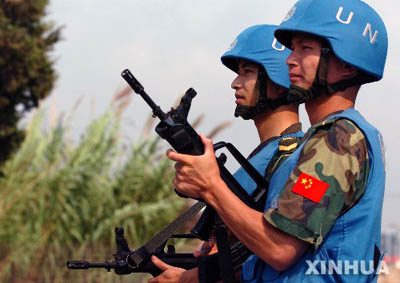Stop Fretting About Beijing as a Global Policeman
Financial Times |

By Jonas Parello-Plesner and Parag Khanna
This year proved a tipping point for China’s approach to the world. The confluence of Europe’s debt crisis and America’s contracting defence budget has created rising expectations that China will shoulder ever greater power burdens for international stability. No longer can it keep a low profile in international strategic and economic affairs. Could it join America as a world policeman sooner than expected?
Beijing’s push outwards has happened faster than its most ambitious leaders could have expected. But as it extends its reach to diversify investments, protect oil interests, patrol shipping lanes and support overseas workers, it risks unexpected ripostes. Every superpower eventually faces blowback.
A honeymoon decade of frictionless business expansion worldwide is over. Already China is embroiled in skirmishes and politicking on new frontiers. After the murder of 13 Chinese sailors on the Mekong river in October, China dispatched armed patrols into Burma, Laos and Thailand, the unruly states forming the notorious Golden Triangle. China is now the Mekong’s de facto river cop.
To predict the outcome of this, consider how Chinese investments were a contested issue in the recent election campaign in Zambia. Even in China-friendly Burma, a giant dam project orchestrated by a Chinese company was just shelved due to local popular opposition.
As China increases its commercial presence in resource-rich countries, such scenes will play out more often. The number of Chinese workers abroad expands by the day. In Libya, more than 35,000 Chinese workers had to be evacuated in March. The combination of search and rescue operations with interests in natural resources can thrust substantial burdens on a nation. Great powers have often been moulded by events rather than grand strategy. The commercial adventures of the East India Company compelled the British state to intervene in China, sparking the opium wars.
China’s traditional inclinations have been to work directly with other governments and demand assurances of protection for Chinese interests, while also freeriding on the security provided by western players, as in Afghanistan. But the absence of credible government in Somalia, for example, has forced China to contribute more heavily to anti-piracy operations in the Gulf of Aden. While it is still reluctant to vote in favour of interventions such as in Syria, that could change. China has more blue helmets UN peacekeepers worldwide than other Permanent Security members. Much as western powers have long used the UN’s legitimacy as cover for their own interests, China could do the same.
The west should view this as an opportunity, not a threat. China should be encouraged to move from hands-off non-interference to engage, as it has done over Iran, North Korea and Sudan. The Mekong river incident and the rescue operation in Libya reveal how China has launched its own ‘responsibility to protect’ doctrine, at least concerning its citizens and workers abroad.
China has crept into the superpower league by deftly building friendly ties with regional powers. While it may seek to avoid choosing sides between various rivals, it will inevitably suffer repercussions as its influence grows. Just as few predicted five years ago that China’s navy would be patrolling the Gulf of Aden, we could one day witness Beijing demanding action in the UN for crisis intervention in a resource-rich country, such as Angola, where it has big interests.
This might not fit with the ‘responsible stakeholder’ mantra promulgated in western capitals several years ago, but China can be motivated to collaborate through self-interest. As the US and Europe have learnt in the Arab spring, China is taking note that negotiating solely with regimes is inadequate. The Lancang-Mekong navigation route could be the Gulf of Aden or the Katanga copper belt of Africa as resource corridors open, they become not only channels of commerce but also conduits for warlords and hijackers. To ensure long-term access to resources, China will have to make friends across the spectrum beyond the Gaddafis and Mugabes.
If it pursues this proactive strategy, China can leapfrog centuries of imperialist missteps and avoid blowback. After all, China has to date not been conquering colonies but rather buying them. This may sound optimistic. But while many in the west tend to quail at the thought of an increasingly interventionist China, it is just possible that an assertive Beijing protecting its interests could also be good news.
The authors are senior fellows at the European Council on Foreign Relations.